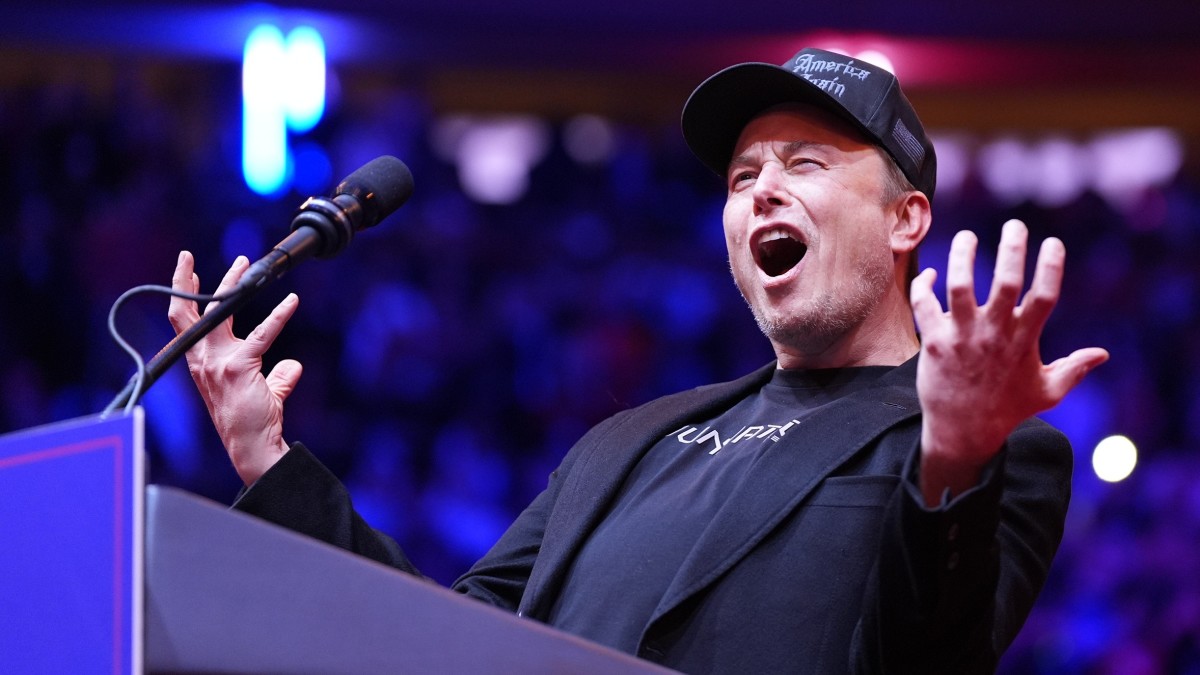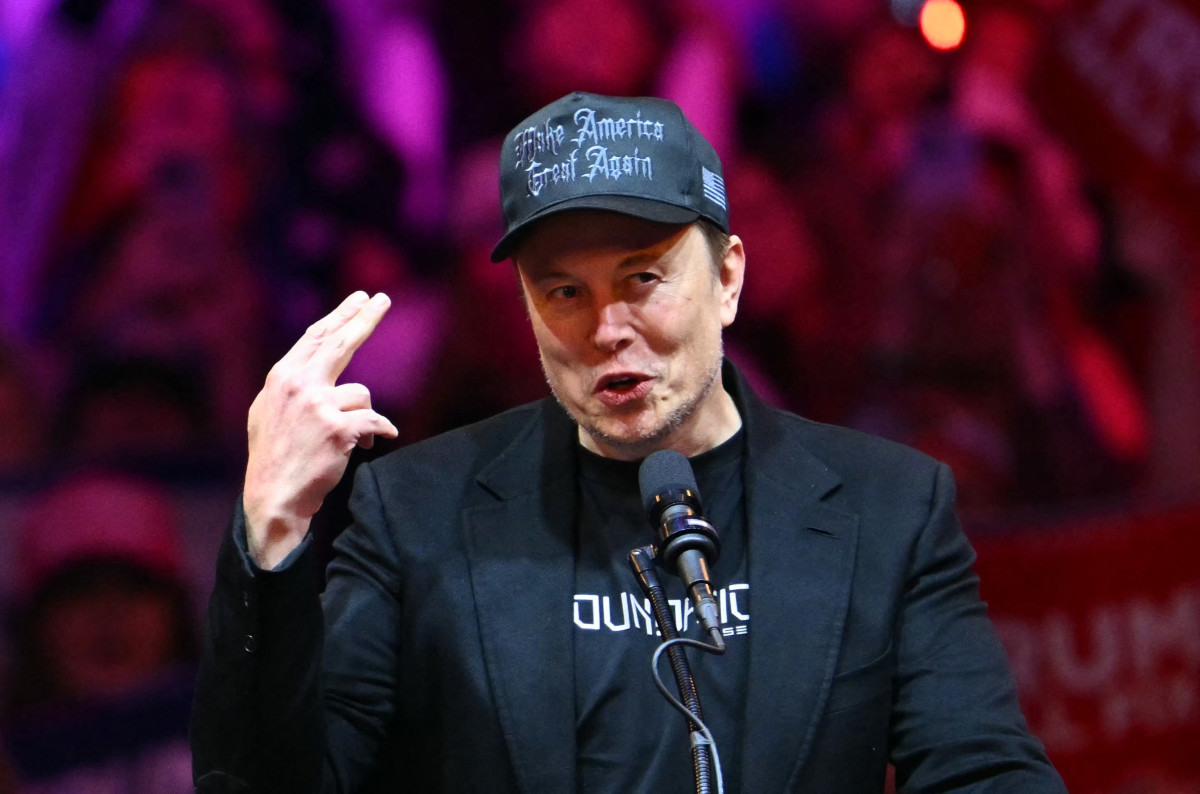
Election Day is Tuesday, November 5, and while Americans go to the polls to choose between Vice President Kamala Harris and former President Donald J. Trump to fill the seat in the Oval Office, the fate of the auto industry's near future is also at stake.
As electric vehicles, or EVs, take a larger role in auto sales amid changing emissions regulations domestically and beyond our borders in major markets like the European Union, the issue is as political as ever.
💰💸 Don’t miss the move: SIGN UP for TheStreet’s FREE Daily newsletter 💰💸
But even as players like Tesla CEO Elon Musk amp up political rhetoric, a poll of voters conducted by The Detroit News reveals that policy regarding EVs remains somewhat divisive, even if it may benefit them.
However, one prominent Tesla expert says that no matter the result, the implications for EVs and Tesla (TSLA) lie ahead, with one candidate having more consequences than the other.

Dan Ives has a stark view of a Trump White House for EVs
In a note published on November 3, Wedbush analyst and Tesla bull Dan Ives predicted that a Trump presidency would be "an overall negative for the EV industry," noting that current EV subsidies, like the tax credits associated with the Inflation Reduction Act, would be taken away once he steps foot into the Oval Office.
Despite taking an active physical and financial role and using his social media platform to echo his political leanings, Ives believes that Musk's positive relationship with Trump can give him and Tesla "a clear competitive advantage in a non-EV subsidy environment."
However, he also predicts that a Trump presidency will negatively impact other areas, specifically China. According to the slide deck accompanying Tesla's third-quarter 2024 earnings, its Shanghai Gigafactory is a significant part of Tesla's production scale.
Related: Tesla gets special treatment with EU's Chinese EV tariffs
Ives warns that if Trump is elected, he "clearly would have a harsher stance on China around tariffs and trade policy," noting that "Beijing retaliatory policies would then set off a trade war and create geopolitical headwinds for Tesla."
"As we saw firsthand in the first Trump Administration, any China headwinds are not a positive for Tesla, given we estimate over 40% of deliveries come from this key region with a strong aspect of its production from Giga Shanghai," Ives warned. "Trump getting in the White House would open up a wild card on the China front that would be seen by the Street initially as a negative."
Granted, Musk insists that Tesla is less of an EV maker and more of an "autonomy and robotics company."
Ives thinks that a potential Trump White House could help cut the red tape preventing Tesla's future products from becoming a reality.
"Trump could also accelerate some of the FSD and autonomous initiatives for Tesla (and Waymo as well) if he wins the White House," Ives said. "The autonomous fast tracking will be front and center for investors in this scenario as some of the 2026/2027 goals for Tesla could be accelerated to stay on track with the China timeline for autonomous currently underway."
More Business of EVs:
- Cheap EVs flood Paris Motor Show. Will Americans ever see them?
- Elon Musk is sending mixed messages about Tesla’s only lifesaver
- Mercedes' new factory is the answer to a very common EV criticism
Ives sees EV growth under Harris, but a win is negative for Elon and Tesla.
Dan Ives recognizes that a potential Kamala Harris victory would result in EV tax credits, such as those under the Inflation Reduction Act, continuing and "ultimately increasing in 2025" as EV adoption would be a "laser focus" during a Harris presidency.
Under the "Issues" tab on the Kamala Harris campaign website, the campaign lays out that Harris will "build on this Administration’s progress to ensure American industries and workers thrive," noting work done as VP to "build the industries of the future while creating high-quality union jobs in the electric vehicle and battery supply chains."
However, as the auto industry evolves, Ives believes that Tesla will not be the only one reaping the benefits.
"We also believe with Detroit auto stalwarts [General Motors] GM, Ford, and Stellantis betting heavily on EVs, Harris winning the White House would be a positive for the overall EV industry and likely a neutral/slight negative impact for Tesla."
Related: Elon Musk has dropped the ball with an influential EV buyer base
However, regardless of who wins, Ives believes that the well-documented Trump/Musk relationship over the election cycle will be a net negative for Tesla.
Musk's association with Trump has arguably already left a sour taste in current Tesla owners and potential EV buyers, but the Tesla analyst believes that the damage is done.
"Clearly, this political dynamic could impact some customers' decision to leave Tesla when buying decisions ultimately come around over the next year," Ives said.
"For now, Tesla's negative impact around this political dynamic is contained. However, it's a political bet for Musk that has positives but also negative consequences abound that could backfire."
Other analysts weigh in on Tesla, Presidential Election outcome
Though Kamala Harris and her running mate Tim Walz have consistent, strong records for promoting policies aimed at curbing climate change and the adoption of electric vehicles, while Donald Trump and his running mate JD Vance consistently echoed the opposite, other analysts have mentioned other associated issues that could be impacted with the election.
During a webcast on October 18, Bank of America US autos analyst John Murphy was asked if there would be any implications for the auto industry if a potential Harris or Trump administration occurred.
Aside from similar sentiments regarding the IRA tax credit, Murphy also predicted that a Trump presidency would weaken the California Air Resources Board (CARB)'s ability to set emission standards that other states could adopt.
Additionally, he mentioned that a presidency by either candidate could bring severe trade and tariff implications.
"I think there's kind of the sort of the backdoor issue of what's going on with the USMCA that I think both of them will be reasonably aggressive on," he said.
"Trump probably more vocally, and maybe a bit more aggressive on the potential for a leakage of or sort of backdoor trade coming from China through Mexico, so getting the USMCA worked out to block that, if you will, or deal with that in a way that would close that back door."
Related: Veteran fund manager sees world of pain coming for stocks







